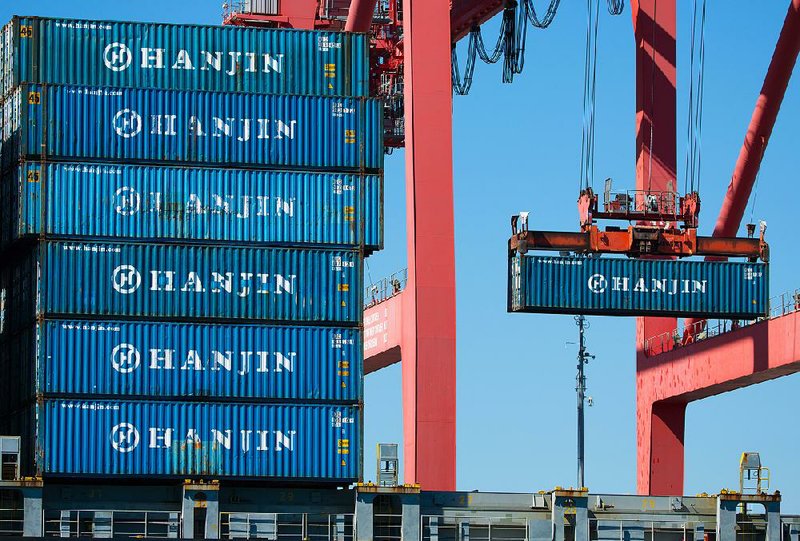WASHINGTON -- The U.S. trade deficit rose 3 percent in August as a flood of imports offset the best showing for exports in 13 months, the Commerce Department reported Wednesday.
The trade deficit increased to $40.7 billion, up from a gap of $39.5 billion in July.
The politically sensitive deficit with China rose to the highest level in 11 months.
Imports jumped 1.2 percent to $228.6 billion, reflecting big increases in shipments of foreign oil, autos and commercial aircraft. Exports were up 0.8 percent to $187.9 billion, the fourth-straight monthly increase and the highest level in 13 months.
Analysts are hopeful that export sales will pick up after a rough two years when American producers had to battle a rising dollar that made their products costlier overseas.
"Exports are beginning to show signs of life as the drag from the dollar's surge in 2014 and 2015 begins to fade," said Paul Ashworth, chief U.S. economist at Capital Economics. He predicted that the rise in exports would contribute to overall growth in the July-September quarter.
The deficit with China increased 3.5 percent to $33.9 billion, the highest level since September 2015. So far this year, America's deficit with China, the largest with any single country, is running 5.7 percent below last year's level.
Republican presidential nominee Donald Trump has accused China of engaging in unfair trade practices that he said have cost millions of American jobs. He has threatened to impose punitive tariffs on Chinese imports to force them to reform their policies.
The trade deficit is the difference between what America exports for sale abroad and imports for consumption In 2015, the deficit in goods and services totaled $500.4 billion, trimming 0.6 percentage point from overall growth of 2.6 percent.
Growth this year is expected to be even slower given a weak start that has seen the economy barely expanding at an anemic rate of 1 percent, as measured by the gross domestic product, in the first half of the year.
However, analysts believe growth will rebound in the second half as continued solid gains in employment help to increase consumer spending. They are looking for a declining trade deficit to help the economy grow about 3 percent in the July-September period.
"We anticipate a further pickup in exports," Jennifer Lee, a senior economist at BMO Capital Markets in Toronto, said before the report. "On balance, that will be supporting U.S. growth in the third quarter."
For August, oil imports rose 2.2 percent to $12.9 billion, with the volume of crude oil imports climbing to the highest level since January 2014. Imports of capital goods rose 2.4 percent, reflecting increased foreign purchases of civilian aircraft, telecommunications equipment and computers.
The rise in exports reflected an increase in U.S. shipments of autos and medical equipment, which offset a drop in sales of American-made aircraft.
One quirk in August was the rise in service imports related to the Olympic Games held that month in Brazil, which provided a one-time rise that will disappear in the September trade numbers, according to economists at firms including Action Economics LLC and Moody's Analytics Inc.
The report showed that charges for the use of intellectual property jumped to $4.5 billion in August, the highest since at least 2014, from $3.3 billion in July.
"Rights to broadcast the Summer Olympics will boost royalties and license fees, captured in imports of intellectual property," Ryan Sweet of Moody's wrote in a note before Wednesday's report. As other recent Summer Olympics occurred in August, the increase will be "isolated to that month," he said.
Information for this article was contributed by Martin Crutsinger of The Associated Press and Shobhana Chandra of Bloomberg News.
Business on 10/06/2016
